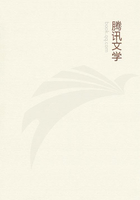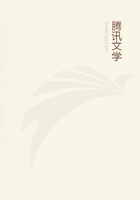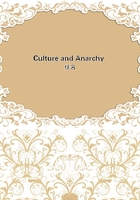And his heart wavered, choosing now to flee, And now to face that hero, man to man As when a mountain boar from his young brood Chases the jackals -- then a lion leaps From hidden ambush into view: the boar Halts in his furious onset, loth to advance, Loth to retreat, while foam his jaws about His whetted tusks; so halted Priam's son Car-steeds and car, perplexed, while quivered his hands About the lance. Shouted Achilles' son:
"Ho, Priam's son, why thus so mad to smite Those weaker Argives, who have feared thy wrath And fled thine onset? So thou deem'st thyself Far mightiest! If thine heart be brave indeed, Of my spear now make trial in the strife."
On rushed he, as a lion against a stag, Borne by the steeds and chariot of his sire.
And now full soon his lance had slain his foe, Him and his charioteer -- but Phoebus poured A dense cloud round him from the viewless heights Of heaven, and snatched him from the deadly fray, And set him down in Troy, amid the rout Of fleeing Trojans: so did Peleus' son Stab but the empty air; and loud he cried:
"Dog, thou hast 'scaped my wrath! No might of thine Saved thee, though ne'er so fain! Some God hath cast Night's veil o'er thee, and snatched thee from thy death."
Then Cronos' Son dispersed that dense dark cloud:
Mist-like it thinned and vanished into air:
Straightway the plain and all the land were seen.
Then far away about the Scaean Gate He saw the Trojans: seeming like his sire, He sped against them; they at his coming quailed.
As shipmen tremble when a wild wave bears Down on their bark, wind-heaved until it swings Broad, mountain-high above them, when the sea Is mad with tempest; so, as on he came, Terror clad all those Trojans as a cloak, The while he shouted, cheering on his men:
"Hear, friends! -- fill full your hearts with dauntless strength, The strength that well beseemeth mighty men Who thirst to win them glorious victory, To win renown from battle's tumult! Come, Brave hearts, now strive we even beyond our strength Till we smite Troy's proud city, till we win Our hearts' desire! Foul shame it were to abide Long deedless here and strengthless, womanlike!
Ere I be called war-blencher, let me die!"
Then unto Ares' work their spirits flamed.
Down on the Trojans charged they: yea, and these Fought with high courage, round their city now, And now from wall and gate-towers. Never lulled The rage of war, while Trojan hearts were hot To hurl the foemen back, and the strong Greeks To smite the town: grim havoc compassed all.
Then, eager for the Trojans' help, swooped down Out of Olympus, cloaked about with clouds, The son of Leto. Mighty rushing winds Bare him in golden armour clad; and gleamed With lightning-splendour of his descent the long Highways of air. His quiver clashed; loud rang The welkin; earth re-echoed, as he set His tireless feet by Xanthus. Pealed his shout Dreadly, with courage filling them of Troy, Scaring their foes from biding the red fray.
But of all this the mighty Shaker of Earth Was ware: he breathed into the fainting Greeks Fierce valour, and the fight waxed murderous Through those Immortals' clashing wills. Then died Hosts numberless on either side. In wrath Apollo thought to smite Achilles' son In the same place where erst he smote his sire;
But birds of boding screamed to left, to stay His mood, and other signs from heaven were sent;
Yet was his wrath not minded to obey Those portents. Swiftly drew Earth-shaker nigh In mist celestial cloaked: about his feet Quaked the dark earth as came the Sea-king on.
Then, to stay Phoebus' hand, he cried to him:
"Refrain thy wrath: Achilles' giant son Slay not! Olympus' Lord himself shall be Wroth for his death, and bitter grief shall light On me and all the Sea-gods, as erstwhile For Achilles' sake. Nay, get thee back to heights Celestial, lest thou kindle me to wrath, And so I cleave a sudden chasm in earth, And Ilium and all her walls go down To darkness. Thine own soul were vexed thereat."
Then, overawed by the brother of his sire, And fearing for Troy's fate and for her folk, To heaven went back Apollo, to the sea Poseidon. But the sons of men fought on, And slew; and Strife incarnate gloating watched.
At last by Calchas' counsel Achaea's sons Drew back to the ships, and put from them the thought Of battle, seeing it was not foreordained That Ilium should fall until the might Of war-wise Philoctetes came to aid The Achaean host. This had the prophet learnt.
From birds of prosperous omen, or had read In hearts of victims. Wise in prophecy-lore Was he, and like a God knew things to be.
Trusting in him, the sons of Atreus stayed Awhile the war, and unto Lemnos, land Of stately mansions, sent they Tydeus' son And battle-staunch Odysseus oversea.
Fast by the Fire-god's city sped they on Over the broad flood of the Aegean Sea To vine-clad Lemnos, where in far-off days The wives wreaked murderous vengeance on their lords, In fierce wrath that they gave them not their due, But couched beside the handmaid-thralls of Thrace, The captives of their spears when they laid waste The land of warrior Thracians. Then these wives, Their hearts with fiery jealousy's fever filled, Murdered in every home with merciless hands Their husbands: no compassion would they show To their own wedded lords -- such madness shakes The heart of man or woman, when it burns With jealousy's fever, stung by torturing pangs.
So with souls filled with desperate hardihood In one night did they slaughter all their lords;
And on a widowed nation rose the sun.
To hallowed Lemnos came those heroes twain;
They marked the rocky cave where lay the son Of princely Poeas. Horror came on them When they beheld the hero of their quest Groaning with bitter pangs, on the hard earth Lying, with many feathers round him strewn, And others round his body, rudely sewn Into a cloak, a screen from winter's cold.
For, oft as famine stung him, would he shoot The shaft that missed no fowl his aim had doomed.
Their flesh he ate, their feathers vestured him.















